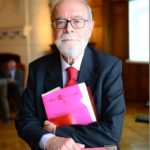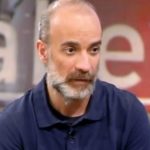The STS research group of the Instituto de Filosofía focuses on studies of science, technology, and medicine. It pays special attention to the structures of knowledge production, expert and lay communities and their history, practices, dynamics, and values, including those of energy and the life sciences. It also deals with knowledge transfer processes, including patents and their dynamics. The group’s research perspective is interdisciplinary, and includes history, philosophy, sociology, anthropology, biology, art, etc.
Another line of inquiry, pioneered by the group in the Spanish and Latin American context, is research on science, technology, and gender. The group has researched women’s work in different areas of science and technology. This has led to the group being present and participating in the most recent and important debates on the feminist agenda. It is noteworthy its active involvement in initiatives and policies to promote equality and visibility of women in science and technology.
The group also researches functional diversity from the perspective of material culture, techniques, and discourses about the body. The group also researches the culture of science, problematizing what we understand science to be, who constructs it and what other possible political cultures of science are possible.
The group also seeks to strengthen research on art, science, and technology. To this end, it is establishing links with national and international groups and researchers and promoting various initiatives with them. The goal is to overcome visions of art that see it as merely illustrative and narrative.
Such visions tend to overlook art’s its potential as a tool for thinking about complexity and what is “difficult to narrate” as a characteristic of artistic practice. The group has also activated a collaboration agreement with artistic and cultural institutions interested in this hybridization, such as the Spanish Academy in Rome or Reina Sofía Museum.
The projects led by this group help to “think the present” by bringing to the forefront past and present controversies that are currently very topical in academic, political, and social forums. The transdisciplinary and the different intellectual backgrounds of the group members allow them to work from different theoretical and methodological approaches; and to reflexively address contemporary problems from a scientific, cultural, historical, and socio-political perspective.
The team has a high rate of scientific production with prestigious journals and publishers (a brief sample is included in the bibliography). It has research work of relevance to society, for example affecting equity policies in science and technology. It has a notable capacity for disseminating and publicizing its achievements through the media. The group also participates in master’s and doctoral programmes and has an excellent record in the supervision of theses and grants.
It maintains connections with national and international research and innovation networks (such as Red Iberoamericana de Ciencia, Tecnología y Género, GENET – Red transversal en Ciencias Humanas, Sociales y Jurídicas, Institute of Science and Technology Studies, Commission on Woman and Gender Studies). It also has experience in in collaborating with groups outside the CSIC that address diverse social problems (climate change, prevention and health consequences, education and scientific culture, technological innovation, precariousness, collective intelligence, conflicts between knowledge, values, interests, and emotions).
Bibliography
Argyriou, Konstantinos (2021). Misgendering as epistemic injustice: A queer STS approach. Las Torres de Lucca: Revista Internacional de Filosofía Política, 10 (19), pp. 71-82. https://doi.org/10.5209/ltdl.76464
Cañelles, Matilde; Campillo, Nuria E.; and Jiménez Mercedes (2020). COVID-19 vaccine race: analysis of age-dependent immune responses against SARS-CoV-2 indicates that more than just one strategy may be needed, Current Medicinal Chemistry, vol. 27, October.
Muñoz, Emilio; Ana García Laso y Domingo A. Martin Sánchez (2018). “The Challenge of Transversal Education Through Teaching Ethics in Engineering: From Hubris to Hybrid”, en Spanish Philosophy of Technology.Contemporary Work from the Spanish speaking Community (B. Laspra and J.A. López Cerezo,eds.), Series: Philosophy of Engineering and Technology, vol.24, pp. 239-249, Springer, Cham.
Pérez Sedeño, Eulalia Kiczkowski, Adriana and Márquez Pérez, Isabel (2018). A sociological study of gender and astronomy in Spain. Nature astronomy, Vol. 2, August, 628–633.
Romero de Pablos, Ana (2020). Mediation and Harmonization: Construction of the Spanish Patent System in the Twentieth Century. In Patent Cultures: Diversity and Harmonization in Historical Perspective, Graeme Gooday, and Steven Wilf (eds.). Cambridge University Press, pp. 184-198.
Santesmases, María Jesús (2018). Circulating Penicillin in Spain, 1940s-1980s: Health, authority, and gender. Palgrave.
Toboso Martín, Mario (2018). Diversidad funcional: hacia un nuevo paradigma en los estudios y en las políticas sobre discapacidad. Política y Sociedad, Vol. 55, Núm. 3, 783-804.
Zafra, Remedios (2020). Three Decades of Art, Feminism, and the Internet. In Art, images, and network culture (ed. Juan Martín Prada). McGraw Hill, pp. 55-82.
 Konstantinos Argyriou is a PhD Candidate in the Department of Science, Technology and Society of the Institute of Philosophy (Spanish National Research Council, CSIC), under the grant Formación de Profesorado Universitario (FPU) of the Spanish Ministry of Universities. He develops his thesis project in Interdisciplinary Gender Studies (Autonomous University of Madrid), examining the representations around gender identity that are generated in counseling and in psychological evaluations between Spain and Greece.
Konstantinos Argyriou is a PhD Candidate in the Department of Science, Technology and Society of the Institute of Philosophy (Spanish National Research Council, CSIC), under the grant Formación de Profesorado Universitario (FPU) of the Spanish Ministry of Universities. He develops his thesis project in Interdisciplinary Gender Studies (Autonomous University of Madrid), examining the representations around gender identity that are generated in counseling and in psychological evaluations between Spain and Greece.
konstantinos.argyriou@cchs.csic.es
 Matilde Cañelles, Senior Resarch Scientist at the STS Department of the Philosophy Institute, Spanish Research Council (CSIC). Worked for 20+ years as an immunologist, currently studying the history ow Women in Science and communicating the Science of the Pandemic through TV, radio, newspaper and Twitter (account with 2,3K followers). matilde.canelles@cchs.csic.es
Matilde Cañelles, Senior Resarch Scientist at the STS Department of the Philosophy Institute, Spanish Research Council (CSIC). Worked for 20+ years as an immunologist, currently studying the history ow Women in Science and communicating the Science of the Pandemic through TV, radio, newspaper and Twitter (account with 2,3K followers). matilde.canelles@cchs.csic.es
 Emilio Muñoz is professor emeritus linked to the Department of Science ,Technology and Society (STS) from the Spanish Research Council (Consejo Superior de Investigaciones Científicas, CSIC) and emeritus professor at the Unit on STS research from CIEMAT. He is a promoter member of the Spanish Association for the Advancement of Science (Asociación Española para el Avance de la Ciencia, AEAC) and Chair of its Advisory Council.
Emilio Muñoz is professor emeritus linked to the Department of Science ,Technology and Society (STS) from the Spanish Research Council (Consejo Superior de Investigaciones Científicas, CSIC) and emeritus professor at the Unit on STS research from CIEMAT. He is a promoter member of the Spanish Association for the Advancement of Science (Asociación Española para el Avance de la Ciencia, AEAC) and Chair of its Advisory Council.
emilio.munozruiz@gmail.com
 Ana Romero de Pablos is a Tenured Scientist at the Institute of Philosophy in the Department of Science, Technology and Society at the Spanish National Research Council in Spain. As Historian of Science and Technology she has published extensively on the history of physics and nuclear sciences in Spain, female scientists in physics and on the circulation of knowledge and scientific artifacts.
Ana Romero de Pablos is a Tenured Scientist at the Institute of Philosophy in the Department of Science, Technology and Society at the Spanish National Research Council in Spain. As Historian of Science and Technology she has published extensively on the history of physics and nuclear sciences in Spain, female scientists in physics and on the circulation of knowledge and scientific artifacts.
ana.romero@cchs.csic.es
 Eulalia Pérez Sedeño is Research Professor and director of the STS group at the Institute of Philosophy. She has been a pioneer in opening the STS field to gender studies and initiating a “new” interdisciplinary line such as Science, Technology and Gender studies both in Spain and Latin America. Within STS and CTG studies, Eulalia has paid special attention to the analysis of biotechnologies applied to women’s bodies, and feminist epistemologies.
Eulalia Pérez Sedeño is Research Professor and director of the STS group at the Institute of Philosophy. She has been a pioneer in opening the STS field to gender studies and initiating a “new” interdisciplinary line such as Science, Technology and Gender studies both in Spain and Latin America. Within STS and CTG studies, Eulalia has paid special attention to the analysis of biotechnologies applied to women’s bodies, and feminist epistemologies.
e.p.sedeno@csic.es
María Jesús Santesmases, PhD in Chemistry (University of Madrid), is Research professor at the Department of Science, Technology and Society, Institute of Philosophy – CSIC. Her research is on history of biomedical sciences, and of gender and women in biomedicine.
mariaj.santesmases@cchs.csic.es
 Mario Toboso Martín is Tenured Scientist at the Department of Science, Technology and Society. His research topics focus on the intersection between Science and Technology Studies and Disability Studies; Studies on functional diversity from material culture, techniques and discourses on the body; Ableism; Disability in Amartya Sen’s capabilities and functioning’s Approach; Accessibility and Inclusive Designs; Studies on time and techniques.
Mario Toboso Martín is Tenured Scientist at the Department of Science, Technology and Society. His research topics focus on the intersection between Science and Technology Studies and Disability Studies; Studies on functional diversity from material culture, techniques and discourses on the body; Ableism; Disability in Amartya Sen’s capabilities and functioning’s Approach; Accessibility and Inclusive Designs; Studies on time and techniques.
mario.toboso@csic.es
 Remedios Zafra is a writer and is a Tenured Research Scientist at the Institute of Philosophy of the Spanish National Research Council. She has been full time professor of Art, Innovation and Digital Culture at the University of Seville. PhD of Arts, International Master’s Degree in Creativity and higher studies in Art, Philosophy and Social and Cultural Anthropology. Her research studies and books deal with the interrelationship between Art and Technology, Feminism and Gender Studies and Critical Theory of Digital Culture.
Remedios Zafra is a writer and is a Tenured Research Scientist at the Institute of Philosophy of the Spanish National Research Council. She has been full time professor of Art, Innovation and Digital Culture at the University of Seville. PhD of Arts, International Master’s Degree in Creativity and higher studies in Art, Philosophy and Social and Cultural Anthropology. Her research studies and books deal with the interrelationship between Art and Technology, Feminism and Gender Studies and Critical Theory of Digital Culture.
remedios.zafra@csic.es